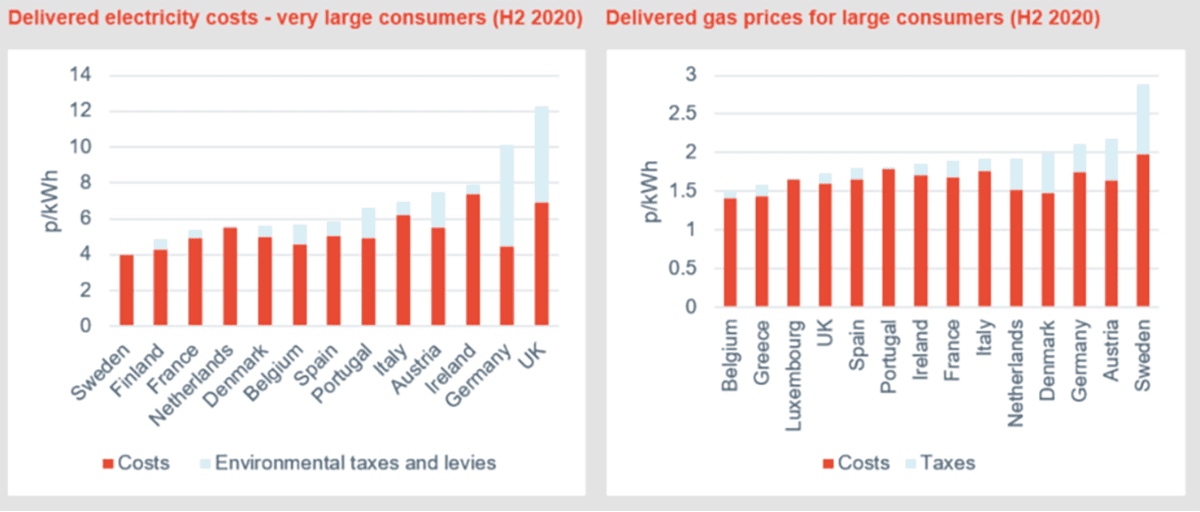
Energy consultancy Cornwall Insight and the Confederation for Paper Industries (CPI) have released a joint report examining the barriers energy intensive industries are facing in their attempts to decarbonise their heat supply. The report, while focusing on paper industries, reflects the experience many energy intensive industries are facing as they look to switch from natural gas to grid supplied electricity.
Heat supply in the UK has been traditionally dominated by gas, relying on diverse supplies from the UK Continental Shelf (UKCS), pipeline imports from Norway, cargoes of Liquefied Natural Gas (LNG), and links to gas networks in mainland Europe. Over the past year, having an energy system largely reliant on gas has been called in to question, with the pandemic recovery and geopolitical concerns among the factors constraining supplies. Not only this, but large natural gas consumption is not compatible with the long-term goals of net zero due to the carbon intensity of fuel.
Despite this, the report highlights that many businesses are struggling with a lack of commercially viable alternatives, even in the face of high gas prices. Hydrogen remains at best a number of years away from being widely commercially viable, while electrically-powered heating – which will decarbonise as the carbon intensity of grid electricity decreases – faces considerable cost challenges.
The UK has some of the highest delivered electricity prices in Europe for large consumers. By contrast, UK gas prices are in line with other major economies. Therefore, our analysis indicates that switching heat generation from natural gas to electricity is not currently a commercially viable option for industry.

The report outlines policy options to address the price discrepancy between gas and electricity, so that switching could become a commercially viable proposition. These include Corporate Power Purchase Agreements (CPPAs), network charge reforms, reducing or removing subsidies for low-carbon generators from the electricity bill, amending the delivered gas price and introducing policy instruments such as heat Contracts for Difference (CfD).
Tom Andrews, Consultant at Cornwall Insight said:
“Decarbonisation of heat is one of the key elements of the UK government’s Net Zero agenda and has been proposed as a means to reduce emissions while driving economic growth. However, the absence of policy support to reduce the gap between electricity and gas prices is making heat decarbonisation for energy intensive companies commercially unviable at the present time.
“The current market, regulatory and policy environment provides little incentive or commercial opportunity for large and energy intensive businesses to fundamentally alter their main sources of heat generation. Without change, any move away from gas to grid electricity supply risks higher costs for UK businesses on the international stage, potentially increasing imports from those international sites that have lower manufacturing costs, with corresponding impacts on UK economic output.
“Given that delivered electricity prices are around six to seven times current delivered gas prices, we will need to see a material reduction in the cost of electricity and increased policy support if operating costs are to stay the same and heat decarbonisation is to become a realistic option.”
You can view the full report here: Addressing the cost of electrification.







